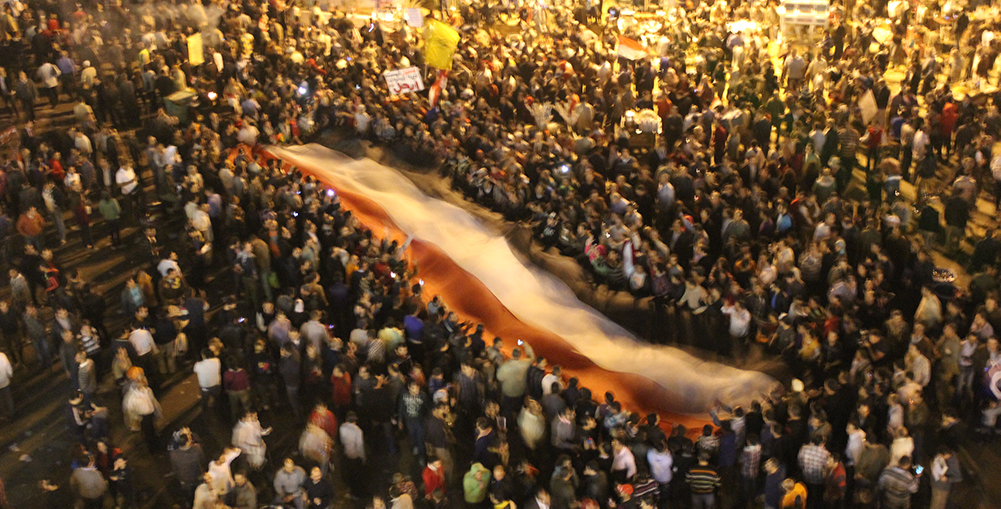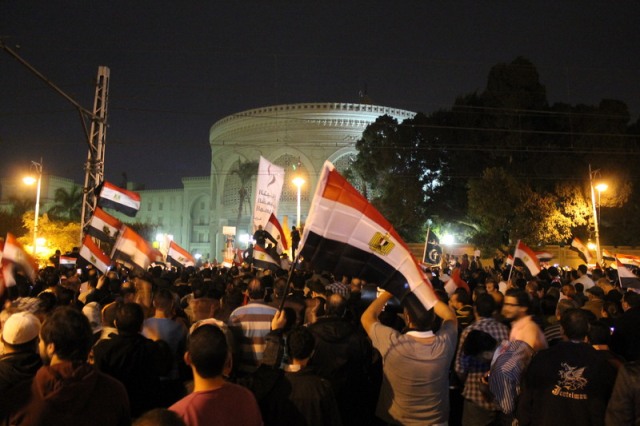Index relies entirely on the support of donors and readers to do its work.
Help us keep amplifying censored voices today.
The central theme of the Spring 2023 issue of Index is India under Prime Minister Narendra Modi.
After monitoring Modi’s rule since he was elected in 2014, Index decided to look deeper into the state of free expression inside the world’s largest democracy.
Index spoke to a number of journalists and authors from, or who live in, India; and discovered that on every marker of what a democracy should be, Modi’s India fails. The world is largely silent when it comes to Narendra Modi. Let’s change that.
Can India survive more Modi?, by Jemimah Seinfeld: Nine years into his leadership the world has remained silent on Modi's failed democracy. It's time to turn up the temperature before it's too late.
The Index, by Mark Frary: The latest news from the free speech frontlines. Big impact elections, poignant words from the daughter of a jailed Tunisian opposition politician, and the potential US banning of Tik Tok.
Cultural amnesia in Cairo, by Nick Hilden: Artists are under attack in the Egyptian capital where signs of revolution are scrubbed from the street.
‘Crimea has turned into a concentration camp’, by Nariman Dzhelal: Exclusive essay from the leader of the Crimean Tatars, introduced by Ukranian author Andrey Kurkov.
Fighting information termination, by Jo-Ann Mort: How the USA's abortion information wars are being fought online.
A race to the bottom, by Simeon Tegel: Corruption is corroding the once-democratic Peru as people take to the streets.
When comics came out, by Sara Century: The landscape of expression that gave way to a new era of queer comics, and why the censors are still fighting back.
In Iran women’s bodies are the battleground, by Kamin Mohammadi: The recent protests, growing up in the Shah's Iran where women were told to de-robe, and the terrible u-turn after.
Face to face with Iran’s authorities, by Ramita Navai: The award-winning war correspondent tells Index's Mark Frary about the time she was detained in Tehran, what the current protests mean and her Homeland cameo.
Scope for truth, by Kaya Genç: The Turkish novelist visits a media organisation built on dissenting voices, just weeks before devastating earthquakes hit his homeland.
Ukraine’s media battleground, by Emily Couch: Two powerful examples of how fraught reporting on this country under siege has become.
Storytime is dragged into the guns row, by Francis Clarke: Relaxed gun laws and the rise of LGBTQ+ sentiment is silencing minority communities in the USA.
Those we must not leave behind, by Martin Bright: As the UK government has failed in its task to rescue Afghans, Index's editor at large speaks to members of a new Index network aiming to help those whose lives are in imminent danger.
Modi’s singular vision for India, by Salil Tripathi: India used to be a country for everyone. Now it's only for Hindus - and uncritical ones at that.
Blessed are the persecuted, by Hanan Zaffar: As Christians face an increasing number of attacks in India, the journalist speaks to people who have been targeted.
India’s Great Firewall, by Aishwarya Jagani: The vision of a 'digital India' has simply been a way for the authoritarian government to cement its control.
Stomping on India’s rights, by Marnie Duke: The members of the RSS are synonymous with Modi. Who are they, and why are they so controversial?
Bollywood’s Code Orange, by Debasish Roy Chowdhury: The Bollywood movie powerhouse has gone from being celebrated to being used as a tool for propaganda.
Bulldozing freedom, by Bilal Ahmad Pandow: Narendra Modi's rule in Jammu and Kashmir has seen buildings dismantled in line with people's broader rights.
Let’s talk about sex, by Mehk Chakraborty: In a country where sexual violence is abundant and sex education is taboo, the journalist explores the politics of pleasure in India.
Uncle is watching, by Anindita Ghose: The journalist and author shines a spotlight on the vigilantes in India who try to control women.
Keep calm and let Confucius Institutes carry on, by Kerry Brown: Banning Confucius Institutes will do nothing to stop Chinese soft power. It'll just cripple our ability to understand the country.
A papal precaution, by Robin Vose: Censorship on campus and taking lessons from the Catholic Church's doomed index of banned works.
The democratic federation stands strong, by Ruth Anderson: Putin's assault on freedoms continues but so too does the bravery of those fighting him.
Left behind and with no voice, by Lijia Zhang and Jemimah Steinfeld: China's children are told to keep quiet. The culture of silence goes right the way up.
Zimbabwe’s nervous condition, by Tsitsi Dangarembga: The Zimbabwean filmmaker and author tells Index's Katie Dancey-Downes about her home country's upcoming election, being arrested for a simple protest and her most liberating writing experience yet.
Statues within a plinth of their life, by Marc Nash: Can you imagine a world without statues? And what might fill those empty plinths? The London-based novelist talks to Index's Francis Clarke about his new short story, which creates exactly that.
Crimea’s feared dawn chorus, by Martin Bright: A new play takes audiences inside the homes and families of Crimean Tatars as they are rounded up.
From hijacker to media mogul, Soe Myint: The activist and journalist on keeping hope alive in Myanmar.
[vc_row][vc_column][vc_column_text]

Tahrir Square. © Gigi Ibrahim /Flickr
[/vc_column_text][/vc_column][/vc_row][vc_row][vc_column width="1/3"][vc_custom_heading text="How governments use power to undermine justice and freedom" font_container="tag:h3|text_align:left" link="url:https%3A%2F%2Fwww.indexoncensorship.org%2F2019%2F06%2Fmagazine-judged-how-governments-use-power-to-undermine-justice-and-freedom%2F|||"][vc_column_text]The summer 2019 Index on Censorship magazine looks at the narrowing gap between a nation's leader and its judges and lawyers.[/vc_column_text][/vc_column][vc_column width="1/3"][vc_row_inner][vc_column_inner][vc_single_image image="107686" img_size="full" onclick="custom_link" link="https://www.indexoncensorship.org/2019/06/magazine-judged-how-governments-use-power-to-undermine-justice-and-freedom/"][/vc_column_inner][/vc_row_inner][/vc_column][vc_column width="1/3"][vc_custom_heading text="Subscribe" font_container="tag:h3|text_align:left"][vc_row_inner][vc_column_inner][vc_column_text]In print, online. In your mailbox, on your iPad.
Subscription options from £18 or just £1.49 in the App Store for a digital issue.
Every subscriber helps support Index on Censorship's projects around the world.
![]() SUBSCRIBE NOW[/vc_column_text][/vc_column_inner][/vc_row_inner][/vc_column][/vc_row]
SUBSCRIBE NOW[/vc_column_text][/vc_column_inner][/vc_row_inner][/vc_column][/vc_row]
An Egyptian journalist covering Wednesday's clashes outside the presidential palace in Heliopolis between Islamist supporters and opponents of President Mohamed Morsi has been declared clinically dead after sustaining gunshot wounds to the head.
33-year-old Al Husseini Abou Deif ---who worked for the independent Al Fagr newspaper --- is the latest journalist to become a victim of the violence while reporting on the protests in Egypt. Another Egyptian journalist was killed while covering the 18-day mass uprising that toppled former President Hosni Mubarak last year. Several journalists, Egyptian and foreign, have also reported assaults, sexual molestation and intimidation while trying to tell the story of Egypt's turbulent transition.
An witness who was standing next to Abou Deif when he was gunned down said that the journalist was shot at close range while filming anti-Morsi protesters under attack. He added that Abou Deif had been deliberately targeted and that his camera had been seized. Doctors at al Zahraa Hospital, where Abou Deif lay in a coma fighting for his life, also confirmed that the assailant had been less than two metres away from the journalist.
A member of Egypt's Journalists' Syndicate, Abou Deif was an outspoken critic of the government and had often participated in rallies protesting media censorship and demanding greater press freedom. He was also an opposition activist and member of the Kefaya movement that opposed the succession of Mubarak's son Gamal and protested political corruption and stagnation.
The violent clashes outside the Al Ittihadeya Palace erupted on Wednesday afternoon when thousands of Islamist supporters marched to the Palace to express solidarity with President Morsi, under attack since issuing a constitutional declaration two weeks ago which gave him absolute powers. The Islamists have attacked scores of opposition activists camped in tents outside the palace since Tuesday night. Morsi's opponents had staged their own million-people rally on Tuesday afternoon, protesting the Presidential edict and a draft charter they say will stifle civil liberties and religious freedom. President Morsi had earlier announced that the draft would be put to a popular referendum on 15 December.

Protest outside Presidential Palace in Cairo, 4 December 2012. Mohamed El Dahshan | Demotix
At least six people were killed and 700 were injured in Wednesday's clashes. Most of the dead were Islamist supporters who succumbed to their wounds after being shot or attacked with knives, a statement by the Interior Ministry said. Two of them were members of the Muslim Brotherhood, from which the president hails. Most of the injuries resulted from Molotov cocktails and fireworks being hurled from both sides. Anti-Islamists accused "Muslim Brotherhood militia" of firing birdshots and using swords to attack them. Denying the accusations, the Islamists insisted they themselves were the victims of such attacks. Riot police that had been absent from the scene at the start of the clashes were deployed hours later and attempted to create a buffer between the two camps.
The attack on Abu Deif followed attacks by security forces on at least two journalists covering last week's protests demanding President Morsi retract his constitutional declaration. The increased violence against journalists has prompted the Journalists' Syndicate to issue a statement demanding that police do more to protect reporters covering the civil unrest. In the meantime, Syndicate members are organising a rally on Friday afternoon to denounce state attacks on journalists.
This week, several journalists and talk show hosts took a firm stand against censorship. The strongest statement came from talk show host Hala Fahmy who appeared on her show on Egyptian State Television carrying a white shroud intended to symbolise "the demise of free expression." The show was immediately taken off the air. Meanwhile, State TV presenter and former presidential candidate Bothaina Kamel is being investigated for going off-script. She told viewers to stay tuned for the "Ikhwani" or "Brotherhood news bulletin" --- a jab intended to signal interference by the newly-appointed Islamist Minister of Information in the news editorial content. Khairy Ramadan, a TV talk show who worked for the independent Channel CBC resigned on-air after the station's managers cancelled a show in which he was to have hosted former presidential candidate Hamdeen Sabbahi.
The impromptu cancellation of the show followed a televised speech minutes earlier by President Morsi, who said that investigations into Wednesday's clashes had revealed that "thugs" hired by opposition political forces and former regime remnants were responsible for attacks on protesters. He vowed that perpetrators attempting to wreak havoc would be brought to justice. While standing his ground on his controversial edict, which he said was meant to propel Egypt forward, Morsi assured Egyptians it would not shield his decisions from judicial review, nor prevent citizens from holding him to account.
The protesters' chants of "the people want the downfall of the regime" that filled Tahrir Square immediately after the speech do not auger well for a near-end to the political turmoil. And for journalists covering the unrest,there are as yet no guarantees of their safety.
Journalist Shahira Amin resigned from her post as deputy head of state-run Nile TV in February 2011. Read why she resigned from the “propaganda machine” here.
An Australian journalist who was detained in Egypt on the first anniversary of the ousting of former president Hosni Mubarak has been freed. Cairo-based freelance writer Austin Mackell was detained alongside an American student and their Egyptian translator in the northern city of al-Mahalla al-Kubra on Saturday while covering a nationwide strike led by workers. Mackell, who writes his own blog and has contributed to the Guardian, the Canberra Times and Russia Today, has said he was accused of spying and inciting people to strike, an accusation he denies.